
Introduction.
Regular readers will remember Andrew’s guest blog from last year. Known also as Mac, due to being called Mark Andrew Card, he is a good friend of mine and a great support in beekeeping. We work together on the local beekeeping association committee and Mac brings lots of uesful skills to this platform as we move forward to become a charity and apply for grant funding and land lease to set up an association apiary for teaching and social purposes.
Mac supplies a wide range of beekeeping equipment which means we no longer have to pay huge shipping fees to get things sent up from the south. https://www.facebook.com/Lochnesshoney
Thank you, Mac, for sharing your season and useful tips with us this week.
Swarm Season.
For the second year running, the 2022 season started off with a bang coming out of a wet spring and warming up quickly at the end of May. Sitting in my kilt at a family wedding in Somerset I felt the frustrations quickly building up as messages about swarms popping out all around Inverness kept coming over my phone and distracting me. Armed with my list of swarm collectors, I nipped outside under the pretext of getting some fresh air and was able to pass the details onto other beekeepers in the area. Of the two colonies I did not manage to get into and check before leaving, John Ross kindly sent me a video of one swarming. Knowing it was going to happen I had set a bait hive for the event and was lucky to catch it.
Covid & Complications.
On my return I was struck with the dreaded covid, and a letter from the DVLA informing me that I was no longer able to drive due to an ongoing eye condition in one eye. This meant I was not able to fully manage the colonies at the OSR losing two out of twenty to swarms and no honey crop. On the plus side the weather was turning wet so I did not need to worry about them starving. Like most of my fellow beekeepers in the area, I left the spring honey for the bees to eat.
Swarm Control.
Confidence in my nucleus method of swarm control meant that I was able to relax a little and leave nature take its course. This is the third year of doing this and it seems to work well. However other beekeepers have had varied success. You can read about how I manage swarm season here:A Bee Farmer’s Swarm Prevention Method: Andrew Card’s Guest Blog. (beelistener.co.uk)
Queen Rearing.
Queen rearing this year has been very frustrating with very little success due to cold wet weather at the crucial times. In 2021 we mated over 100 queens. By the middle of this July frustration had set in with only 34 mated queens out of 100 possible cells. I like queens to be mated within the first three weeks, after this time fertility can be affected: as such, any unmated queen is dispatched without sentiment. I need to rely on selling viable nuclei and colonies, and maintaining healthy stock.
Nuclei.
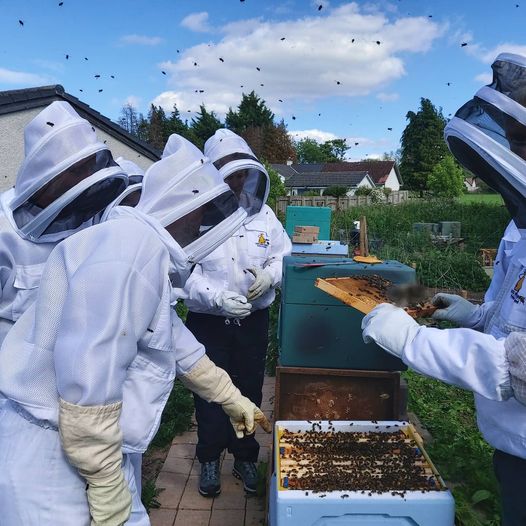
This year our early mated nucs have been problematic with 3 that have been sold giving new beekeepers a real headache. Due to poor weather at mating time, one queen was poorly mated and soon became a drone layer. In two other situations, the new beekeepers over-fed the wee colonies making the brood nest honey-bound and overcrowded which lead to the inevitable swarming. Being able to support them can be rewarding and ensures any problems are quickly rectified. My sales strategy involves an aftercare service as honey bee welfare is high on my priorities.
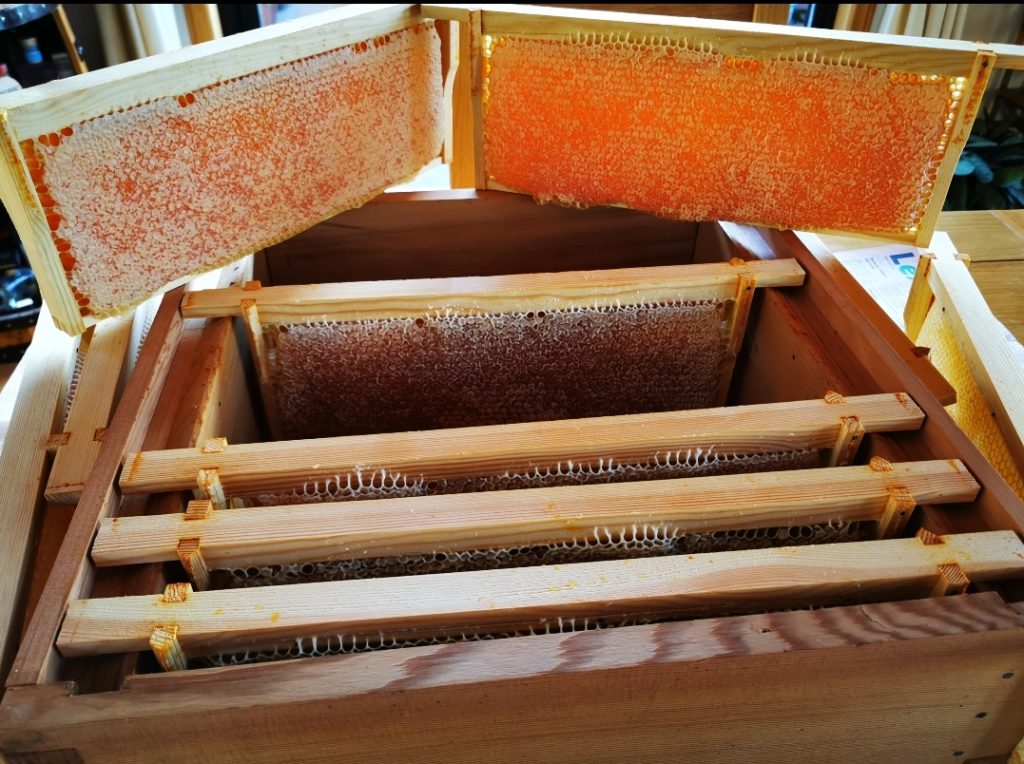
On the plus side, here is a photo from a small harvest from a nuc we supplied at the end of June. Reducing the available space down to 6 frames (chimney effect) meant less space for the bees to work without compromising the development of the brood whilst getting a small harvest.
Honey Production.
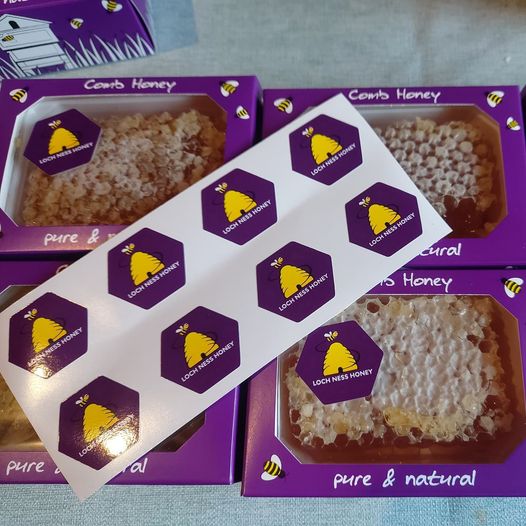
Increasing my honey producing colonies from 45 to 55 should have increased the honey harvest. However, the continual warm dry nectar-drying breeze has affected some colonies with regard to honey production with only a slight increase in yield. The lack of growth in the grass meant farmers were not able to take a second cut of silage which gave the clover a better chance of coming through. I was fortunate to be invited to place hives on 10 acres of clover which produced a bumper harvest with 75 lb of honey off one colony! I still cannot understand how one colony can fill three supers while the colony next door struggles to fill one. As David Edes would say, “they have not read the books”. Thanks to the clover, 2022 has produced an average of 42 lb of honey.
Supplying Equipment and More.
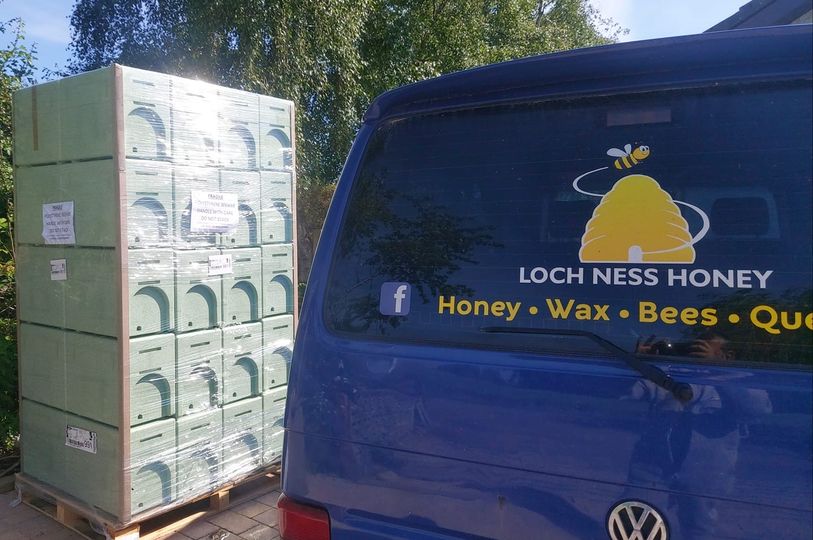
This is my first year of hardware sales and, whilst toiling with depression and the frustrations of not having a driving licence, the flow of customers has forced me into having to get on with things. Some of the customers will not know of the positive impact their visits have had, and each one, no matter how small the sale, provides a welcome boost to an otherwise dull day. Very often I have found myself discussing low moods with a number of folks who have been through similar low periods. It’s good to talk.
Brood Factories.
At the start of August my mind was already turning to the 2023 season. Having studied Mike Palmer’s management strategy, this year I trialled a brood factory at two sites https://www.bing.com/videos/search?q=mike+palmers+brood+factory&&view=detail&mid=4E2B00747621FCB6749B4E2B00747621FCB6749B&&FORM=VDRVSR. For this I used a double brood nuc providing 12 frames. Should any colony look a little weak, or a nuc be light on bees, I use the brood factory to boost these colonies by taking a frame of capped brood and leaving the bees in the brood factory. I don’t believe in using test frames when I find what might be a queenless colony. The reasons are that it can deplete a strong colony if you consider that one frame of eggs equates to 3 of bees. Also, rarely are my colonies ever actually queenless. Often a bad spell of weather will cause reduced laying, or stall the queen for a short spell. However, a brood factory can also be used to obtain a frame of eggs without weakening stronger colonies. Not only does it serve to boost colonies but it houses a queen in reserve should one be required at short notice. All sites are currently being reorganised to have pairs of hives side by side. Should one colony fail then the colony alongside will be quickly combined until a replacement queen is added. This should provide stronger colonies throughout the main season.
Buddying Up.
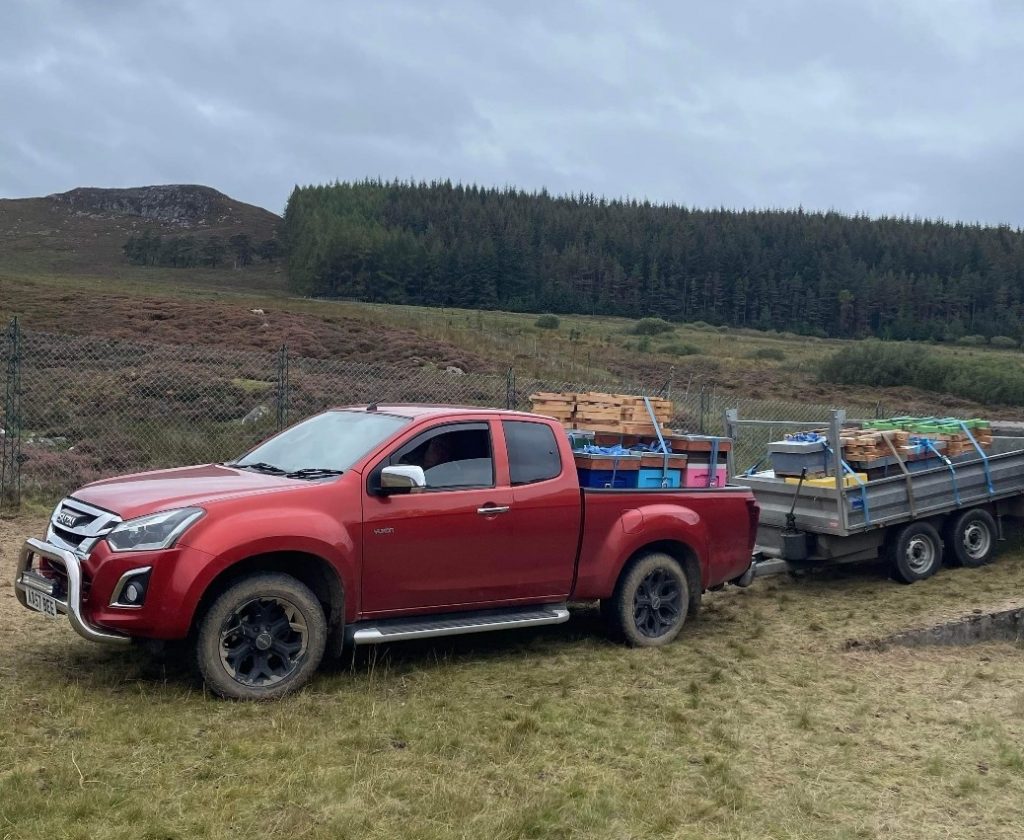
This year I have done a lot of work alongside Ian Anderson of Alves Apiary https://www.facebook.com/people/Alves-Apiary/100066603097055/. Initially I had seen Ian as competition but quickly realised that working together has huge benefits. Ian is always dreaming up some new idea to simplify his beekeeping and appears to know somebody in all corners of the Highlands. Very often we just spend hours talking rubbish but somewhere along the line we establish a nugget of information, or hatch the next plan, some of which will always remain a secret! Working alongside Ian has undoubtedly made 2022 an enjoyable season. From speaking to other beekeepers such as Stephen McCarthy, there are many benefits to working alongside another keeper and I would recommend it to anyone. I’m already looking forward to the new season in 2023 wiser than I was at the start of this one!
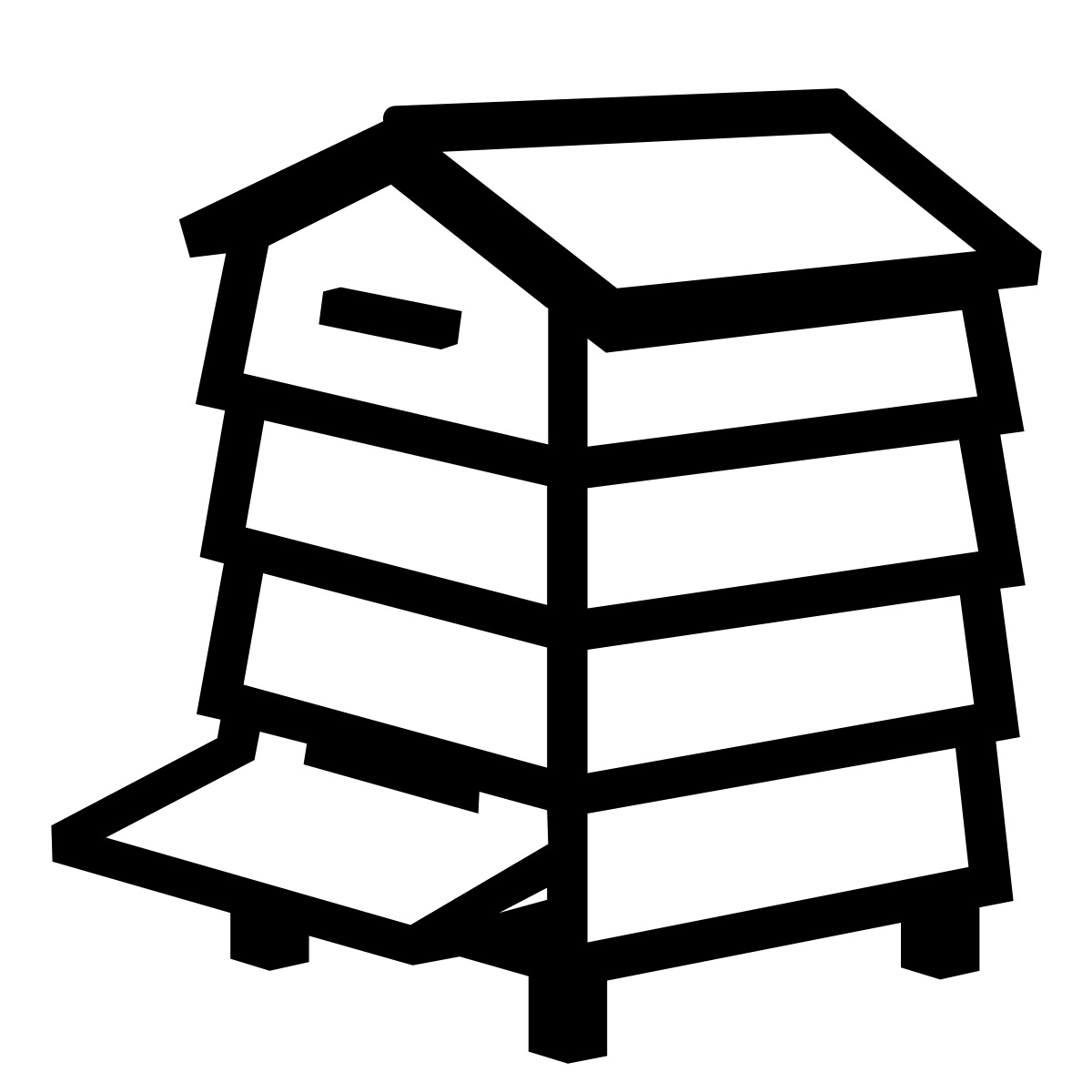
I enjoyed reading this .. an excellent article ! 👏👏
Hi Andrew, thank you for allowing us insight into your beekeeping thoughts and processes, particularly how you are using nucs.
I was sad to hear about the loss of your driving licence. I’m on a 3 yr medical driving licence as I too have a progressive eye condition and every time I have to sit my test for DVLA to renew my licence I am quite desperate with anxiety. I keep bees in one of the remote parts of Somerset (not as wild or remote as parts of Inverness I grant you 😉) so I need my car to live here and drive to get to my two out apiaries. I just wanted to send my warm wishes to you and to say that I believe I understand something of the impact this news may have had on you and I applaud your positive attitude.
I think following the model of collaboration that we witness everyday in our bee colonies, with beekeepers working together and pooling resources is a very positive way forward for all of us in these challenging times! So I look forward to hearing more of your beekeeping journey.
Ps: Ann- Another great blog! Lots of useful stuff to ponder. Thank you!
Thank you Jenny for your kind words. Being open and talking to those around us can help a lot but the anxiety is sometimes very difficult to handle. I hope you enjoy the ability keep beekeeping for sometime yet.
Hi Mac my bees that I bought from you have done really well and are easy to work with they’re very calm
Thanks for being so frank, I have to take the DVLA test for glaucoma to keep my driving licence and find the experience very dispiriting. I understand your frustration.
They certainly don’t like to make life easy.